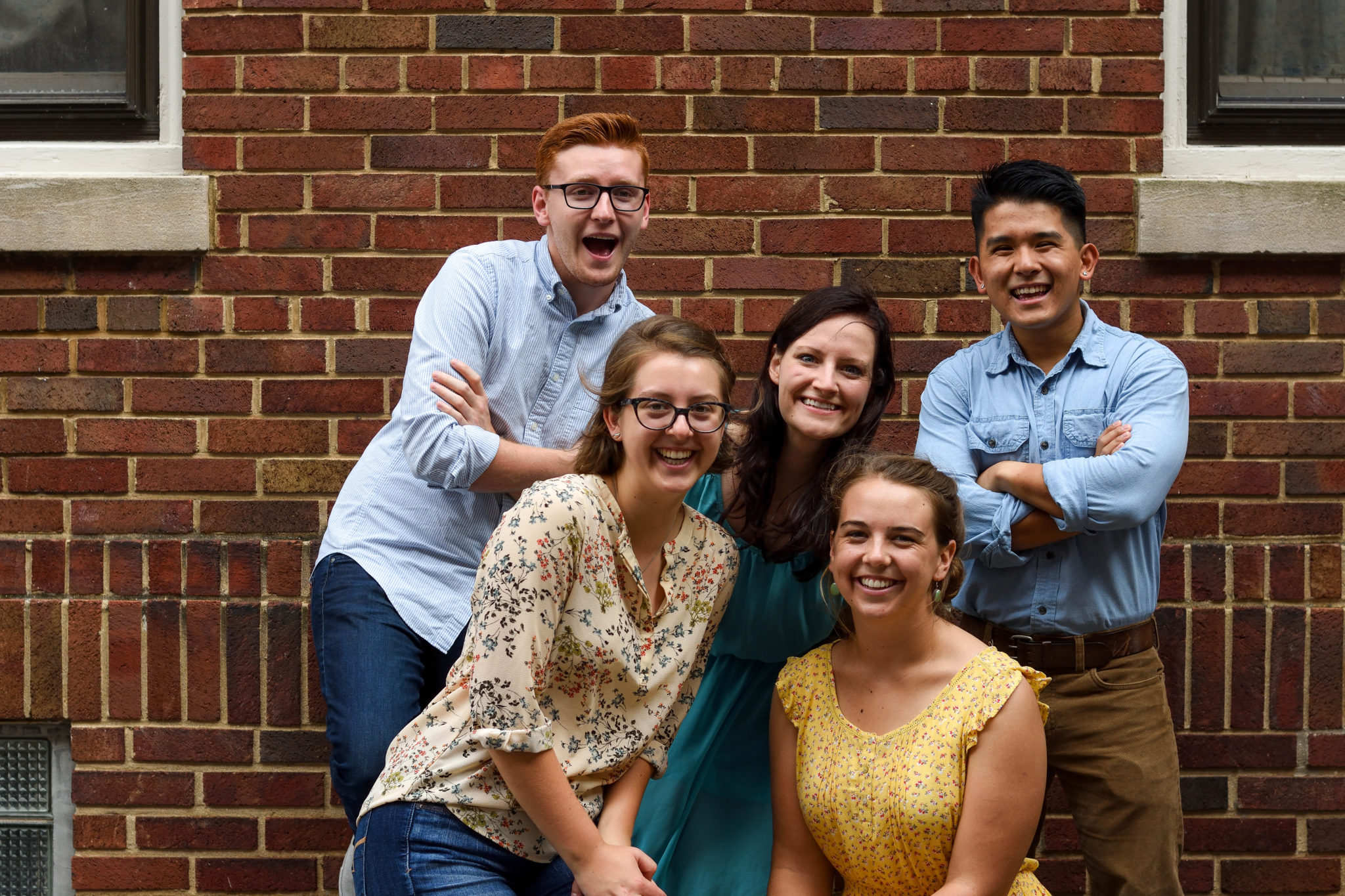MADELINE ZUKOWSKI
CATHOLIC HERALD STAFF

When young adults go off to college, they become independent. They choose their area of study, what they want to eat and how much time is spent on sleep, studying and fun activities. Faith is no different — how engaged he or she is in the faith is up to the individual.
But Brew City Catholic, the young adult ministry of the Archdiocese of Milwaukee, has prepared and formed campus missionaries to help college students, specifically public university students, to connect with their faith.
In the 2018-19 school year, nine campus missionaries will serve primarily on the campus of UW-Milwaukee, but also help out at UW-Whitewater and the Milwaukee School of Engineering.
These missionaries, who are recent college grads (usually one or two years out of college), live in community near UWM and spend their time at the secular colleges.
“Campuses are massive,” said Pete Burds, the director of campus and young adult ministry in the archdiocese. “There are tons of Catholics on campus. Whether they’re practicing or not is in question.”
How the campus missionaries engage practicing Catholics — and those who have fallen away — happens in three ways, said Burds.
The first is called “relational ministry,” or forming relationships on campus. It’s the missionary’s job to strike up conversations with people he or she meets on the campuses, even people he or she met in the campus ministry office, and get to know students in a casual way.
The second method is facilitating, or co-leading with a student, a small gr
oup Bible study. For example, at UW-Whitewater, there’s a Bible study in one of the dorms that includes six to eight students every week. The missionaries and their co-leaders either follow a Bible study curriculum or look at the next Sunday’s Gospel and discuss the faith with each other through small group sharing.
Perhaps the most important engagement technique, said Burds, is one-on-one peer mentoring. “If a student from their Bible study for example has a certain interest, or sees the Scripture take root in their life — if that seed is planted in a sense — the missionary will reach out to them and ask to meet for coffee,” said Burds. “They become like an older brother or sister, and can show them a few things about prayer or ask about their relationship with the sacraments. We call it walking with a student.”
But these missionaries don’t go out and work to bring college students to Christ empty-handed. Burds’ office trains and forms the missionaries in discipleship so their work is effective. They spend two weeks in June, four weeks in August and one day a month learning and receiving intellectual, pastoral, spiritual and human formation.
Intellectual formation includes learning and understanding the teachings of the Church in relation to the creed, sacraments and morality. Pastoral formation includes tactics like how to meet people and how to run a Bible study. Spiritual formation gives the missionaries tools for prayer and other opportunities to deepen their relationship with Christ. Human formation focuses on practical skills many post grads need, like forming a monthly budget, how to deal with conflicts when living with other people and how to form healthy leisure time.
In addition to the formation, the missionaries also partici
pate in an eight-day silent retreat during Lent and take a pilgrimage to Rome, which instills in them a love for the Church, a characteristic that every missionary needs, according to St. John Paul II.
“One of the best ways to instill that love for the Church is to see the Church in all of its beauty,” said Burds. “There’s something unique about walking through St. Peter’s Basilica and seeing where the popes and saints are buried. It’s a universal experience that can be translated to local context. It’s not just us on our little island and our own campuses. We are a part of something so much bigger.”
According to Burds, the campus missionary project is a “win-win-win.” It’s a win for campus ministry offices on these campuses that are often not largely staffed. The missionaries give them “more boots on the ground” to show students how to live their faith in their everyday lives, which are often filled with social pressures and hostility toward faith and religion.
It’s a win for the missionaries themselves, who have the opportunity to dive deeper into their faith and share it with others, often giving them a life changing experience.
Most importantly, it’s a win for the universal Church and the Church in our area.
“The real beauty is that we have very formed people that have a missionary heart,” he said. “After their time as missionaries, they’re in our young adult groups, they’re on our pastoral councils, we had a young man enter the seminary, they’re future parents involved in their faith. We’re inspiring holiness throughout the year, but we let God take care of the rest of their lives, growing within their parishes and growing the Church at large.”
